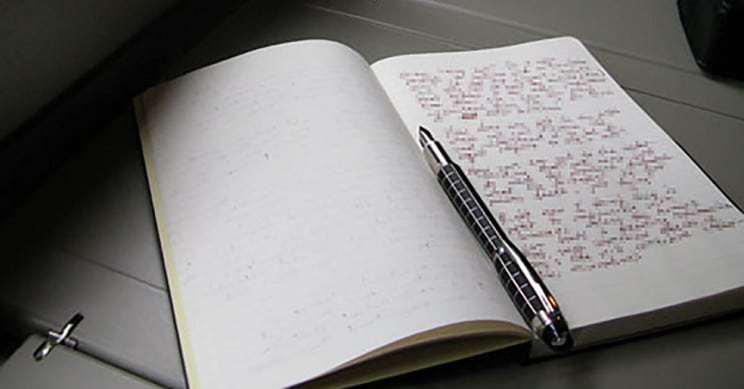You know, I’ve given a lot of thought to the importance of keeping a journal in my life. Of course, I’m a writer, so the journal is a place for me to keep all of my daily bits and pieces of inspiration; however, I also thought that perhaps the lessons I’ve learned from journaling can be just as useful to those of us who are interested in self-help and self-improvement. After all, journaling as a writer is just another way to improve myself as a person.

Here are a few of the lessons I’ve learned from my journaling and how they could apply to journaling and self-reflection as a form of self-help. I hope these are useful to you!
Keeping a Journal Keeps Me Focused
Keeping writing journal allows me to track all of my various writing projects, both creative and freelance. In a way, my journal is a portable task master, which helps me prioritize my tasks and see how each task can eventually help me achieve my goals. In the back of my journal I keep a list of things to do, and I always have this list with me. I have various sections within these lists: freelance projects, creative projects, daily to dos, etc. When I finish a task, I can cross it off and work on the next thing. Keep yourself motivated.
If you’re interested in using a journal as a helpful task-manager, it could significantly help you improve your productivity and help you gain control over your life. Think about all the different parts of your life that are important and make a list of to dos in a journal that will help you manage these aspects: relationships, family, job, financial goals, and so on. Then do your best to follow these lists; you’ll probably find that they really help you stay aware as to what your priorities in life really are!
Read more in the book ‘The Mind-Changing Habit of Journaling: A Guided Journal for Self-Exploration, Self-Care, and Re-Discovering Your Self-Worth“
Journaling Allows Me To Be Unedited
One thing I get a lot as a writer is suggested edits; sometimes I feel as though these edits, even though they might improve the project, encroach on my creativity as a writer. Of course, I can’t complain, as I need to be able to collaborate with others, including editors, but every now and then I really need a chance to write simply for myself. That’s where my journal comes in; it allows me to write unedited.
Likewise, think about how you act in social contexts; you’re constantly editing yourself. A journal, however, allows you to record your unedited thoughts and feelings. These unedited thoughts and feelings are for your eyes alone. Reflecting on some of your deeper and perhaps less socially acceptable thoughts and feelings can really help you figure out some of your desires, your likes and dislikes, what pains you and what pleases you. Once you can freely write about these things, you can be more aware of how these things affect your social interactions with others. Knowing where many of your subconscious fears and desires come from can significantly improve your public actions and how you relate to others.
My Journal is the Memoir of My Future
Finally, in my writing journal, I can reflect on how my past thoughts and actions can help me succeed in the future. In other words, by reading my past thoughts on writing, I can come up with a list of long-term goals for myself. Writing about these goals helps me keep them in mind and connect them to my daily writing activities.
Likewise, you can use a journal to create an ideal ‘future you’ that represents what you would like to become in the next few years. Because ‘becoming a better person’ is a constant process, this aspect of your journal will always change as well as you discover new and important ways to improve yourself. Use this method of journal to constantly look to the future and be hopeful.
Other Articles
